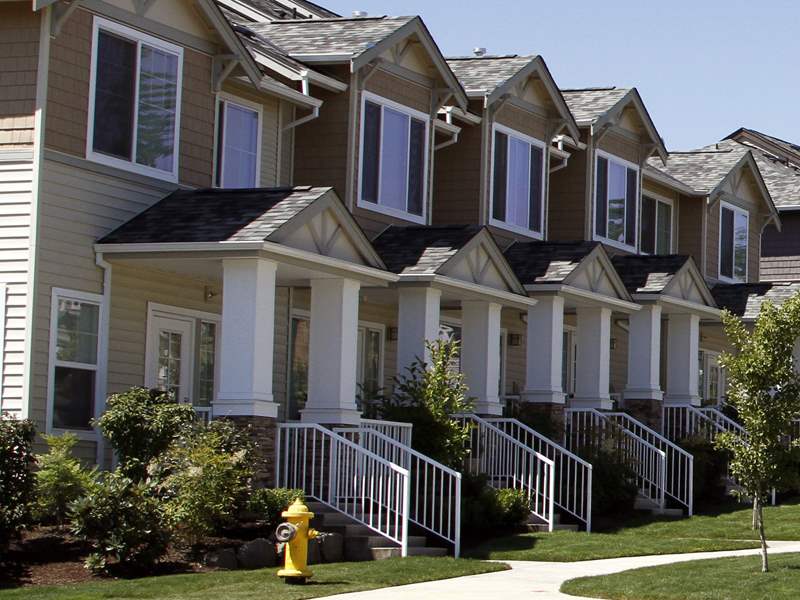
Cleveland property firm accused of bias
Housing agency says Safeguard neglects minority neighborhoods
4/11/2014
Editor's note: This article has been updated with a statement from Safeguard Properties.
Toledo’s Fair Housing Center and the National Fair Housing Alliance have filed a complaint with the U.S. Department of Housing and Urban Development against a Cleveland property management company that has operations in the Toledo area.
The complaint says that Safeguard Properties, the nation’s largest privately held property preservation firm, failed to maintain foreclosed homes in minority neighborhoods in Toledo and three others cities yet simultaneously maintained foreclosed homes in predominantly white neighborhoods.
Under the federal Fair Housing Act, failing to maintain homes based on racial or ethnic composition of a neighborhood is illegal.
Safeguard Properties was employed by the Federal National Mortgage Association to maintain its foreclosed or real estate owned homes in Toledo, Dayton, Memphis, and Baton Rouge.
The complaint states that Safeguard failed to correct even basic problems with Fannie Mae homes in predominantly black and Latino neighborhoods compared to its effort in white neighborhoods. The housing alliance filed a similar complaint against Safeguard a year ago.
“After we filed our first complaint against Safeguard Properties in March, 2013, we met with them to outline the maintenance disparities in African-American and white neighborhoods,” said Shanna L. Smith, president and CEO of the Fair Housing Alliance in Washington. “However, Safeguard claimed the examples of failed maintenance were isolated incidents and has continued in its failure to maintain properties in African-American and Latino neighborhoods.”
In a statement, Safeguard Properties said it was disappointed that the fair housing alliance had conducted a press conference this week to discuss the complaint.
"Since the complaint was originally filed, we have worked with HUD through the administrative process and have complied with information requests. We have asked NFHA for details on the actual properties they base their complaints on; and they have not cooperated with us. Safeguard has and will continue to cooperate with HUD’s investigation of this matter," the statement said.
"Safeguard performs services following industry standards set forth by investors and our clients pursuant to service agreements. The standards pursuant to which Safeguard performs services do not vary based on the makeup of a particular community," it added.
"Safeguard neither condones nor tolerates acts of racism or business practices that would unfairly target or neglect certain neighborhoods based on location and demographics. We are outraged by the allegations made by the NFHA and we intend to dispute the claims and prove the accusations to be untrue," Safeguard said.
"We take complaints of this nature very seriously. Safeguard has a proven record of working with our clients, communities, and civic leaders throughout the country to combat blight brought on by the housing crisis. We have senior members of our leadership team that sit on the boards of community outreach groups; we host national conventions with the primary purpose of collecting and reinforcing the behavior and guidelines that preempt neighborhood deterioration; and we participate in industry and investor feedback panels where the focus is to build best practices to protect and preserve the houses that make up these communities," the statement said.
Michael Marsh, president and CEO of Toledo’s Fair Housing Center, said there is no problem with Fannie Mae.
“We are going after Safeguard. Specifically, we are looking at the properties they are taking care of for Fannie Mae, but we’re not going after Fannie Mae. In fact, Fannie Mae provided a grant for us to figure out what was going wrong with their properties,” he said. “It’s Safeguard that’s the problem. They’re basically not doing their job.”
In Toledo, investigators from the Fair Housing Center examined 33 Fannie Mae real-estate owned properties that were supposed to be maintained by Safeguard. Eight were in African-American neighborhoods while 25 were in predominantly white neighborhoods.
Mr. Marsh said the center “focused our investigation on middle-income neighborhoods as opposed to low-income. These were middle-class working folks who deserved to have their surrounding properties maintained.” He said one of the areas looked at was an African-American neighborhood very near the University of Toledo, but he wouldn’t be more specific.
The center’s president said investigators looked for what it calls “deficiencies,” or the absence of basic care — substantial trash or debris, overgrown grass or shrubbery, invasive plants, unsecured or broken doors or windows, holes in the structure, and broken steps or missing handrails.
“What we were finding was they were not even doing the basics,” Mr. Marsh said. “What they tended to do was a drive-by and shoot a picture of the front [and submit it to Fannie Mae]. When we’d go out to do a search, what you’d find was the front didn’t look so bad. But when you get to the back, oh my gosh. You’d find broken doors, broken windows, trash. It was putting the rest of the neighborhood at risk,” Mr. Marsh said.
Of the eight real estate owned homes in African-American neighborhoods it looked at in Toledo, the Fair Housing Center found seven had three or more deficiencies, compared to only six of the 25 homes in white neighborhoods.
Contact Jon Chavez at: jchavez@theblade.com or 419-724-6128.